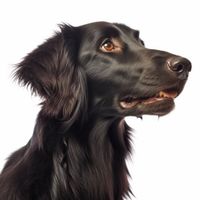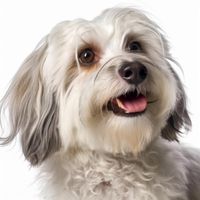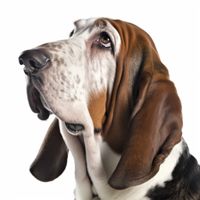Flat-Coated Retriever - vs - Havanese - vs - Basset Hound
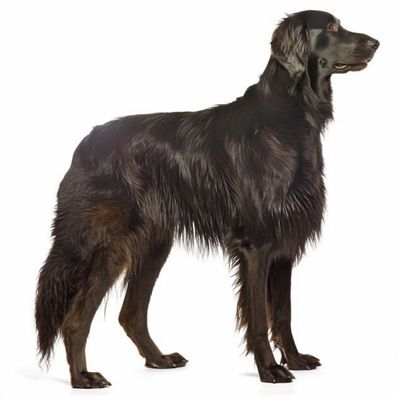
Flat-Coated Retrievers are large dogs, weighing 55-75 lbs, with a height of 22-24.5 inches.
Flat-Coated Retrievers have a high energy level and require regular physical and mental stimulation to stay happy and healthy.
Flat-Coated Retrievers need plenty of exercise, including daily walks, runs, and opportunities to participate in activities like swimming, fetch, or dog sports.
Flat-Coated Retrievers are intelligent and eager to please, making them relatively easy to train with consistent, positive reinforcement.
Flat-Coated Retrievers are highly intelligent dogs and excel in various dog sports and activities, especially those involving retrieving and scent work.
Flat-Coated Retrievers can adapt to various living situations, but they thrive in environments where they have space to run and exercise.
Flat-Coated Retrievers are known for their excellent temperament with children, making them great family pets. Supervision and proper training are still important.
Flat-Coated Retrievers can get along well with other pets, especially when raised together.
Flat-Coated Retrievers can tolerate cold weather due to their dense, waterproof coats, but they may still need extra protection during extreme cold.
Flat-Coated Retrievers can tolerate warm climates, but they need to be monitored for signs of overheating during exercise.
Flat-Coated Retrievers have a dense coat and shed moderately, requiring regular brushing to keep their coats clean and healthy.
Flat-Coated Retrievers require regular grooming, including brushing and occasional bathing, to keep their coats clean and healthy.
Flat-Coated Retrievers have average bark tendencies and may bark for various reasons, such as alerting their owners or during playtime.
Flat-Coated Retrievers are generally healthy, but regular veterinary checkups and preventative care are still necessary.
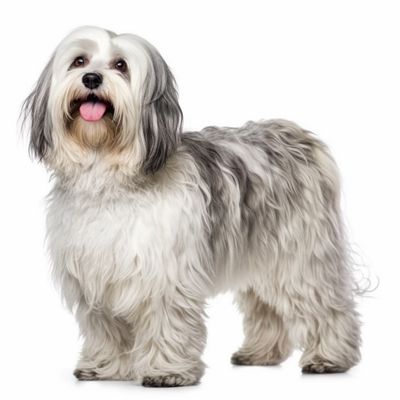
Havanese dogs are small-sized, standing 8.5-11.5 inches tall and weighing 7-13 lbs.
Havanese have a moderate energy level, enjoying playtime and daily walks.
Havanese require low to moderate exercise, including short daily walks and indoor or outdoor playtime.
Havanese are intelligent, eager to please, and respond well to positive reinforcement, making training relatively easy.
Havanese are intelligent dogs with a natural curiosity and problem-solving skills.
Havanese are highly adaptable and can thrive in various living situations, including apartments and homes with yards.
Havanese are gentle, affectionate, and playful, making them excellent companions for children.
Havanese typically get along well with other dogs and pets, especially when socialized from an early age.
Havanese can tolerate colder climates, but they prefer moderate temperatures and need to be protected from harsh weather conditions.
Havanese can tolerate warmer climates, but they should be provided with shade, water, and limited exercise during the hottest parts of the day.
Havanese have low shedding coats, making them a good option for people with allergies.
Havanese require regular grooming, including brushing every few days and occasional baths to keep their coats clean and tangle-free.
Havanese have average bark tendencies and may bark for various reasons, such as alerting their owners or during playtime.
Havanese are generally healthy, but regular veterinary checkups and preventative care are still necessary.
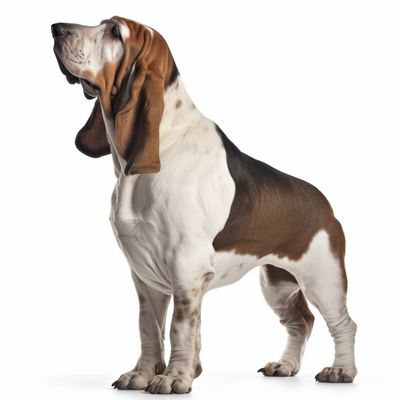
Basset Hounds are medium-sized dogs, weighing 40-65 lbs, with a height of 11-15 inches.
Basset Hounds have a low energy level, enjoying leisurely walks and plenty of relaxation time.
Basset Hounds need minimal exercise, including short daily walks and playtime, to keep them happy and healthy.
Basset Hounds are intelligent but can be stubborn, making training a challenge. Consistent, positive reinforcement is key.
Basset Hounds are intelligent dogs, capable of learning a variety of commands and tasks, but their independent nature can make training challenging.
Basset Hounds can adapt to different living situations, but they require enough space to move comfortably and regular grooming.
Basset Hounds are gentle and patient, making them good with children when properly supervised.
Basset Hounds can get along well with other pets, especially when raised together. Early socialization is important.
Basset Hounds can tolerate colder temperatures, but their short coats require proper protection during extreme cold.
Basset Hounds can tolerate hot climates, but they need to be monitored for signs of overheating during exercise.
Basset Hounds have a short coat and shed moderately, requiring regular brushing to manage shedding.
Basset Hounds require regular grooming, including frequent brushing and occasional bathing to keep their coats clean and healthy. Their ears also require regular cleaning.
Basset Hounds bark occasionally, usually only when necessary or provoked.
Basset Hounds may experience some health issues and require additional care and attention, such as regular veterinary checkups, preventative care, and potential medication or treatments.

